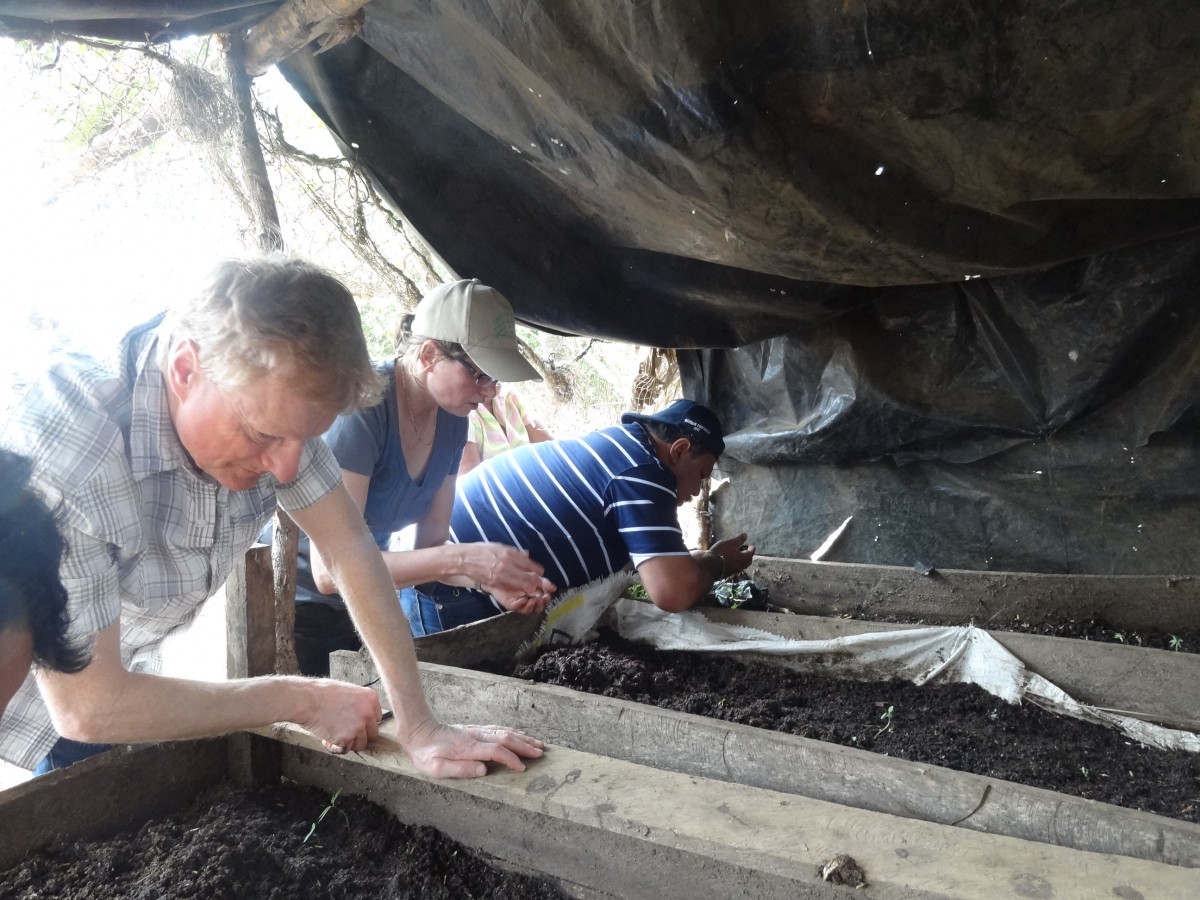
In Nicaragua, soil science professor Annemieke Farenhorst examines a project involving vermi-composting (a process that uses worms to aid in the decomposition of organic materials).
Teaching farmers, growing relationships: Reducing pesticide use in Central America
WHAT: A community-based pest management project encouraged pesticide safety among rural workers in Central America, and was led by soil science professor Annemieke Farenhorst, NSERC’s Chair for Women in Science and Engineering – Prairie Region. The project ran from 2005 to 2013.
HOW IT WORKED: The project provided technical and financial support to universities in Costa Rica, Nicaragua, and Honduras, enabling them to teach agricultural workers pesticide safety practices.
HOW IT STARTED: During a work visit to the University of Costa Rica, Farenhorst was surprised by the number of small-scale agricultural workers applying chemicals in the field without any personal protection.
THE GOAL: To reduce pesticide use and teach farmers—through workshops, field demonstrations, and technical support—how to safely and effectively apply and dispose of pesticides.
WHY IT’S IMPORTANT: Many farmers in Central American frequently apply too much pesticide to their crops resulting in high levels of pesticide residue on people’s food and damage to the environment. This practice is not environmentally or economically sustainable and has far-reaching impacts on the social and economic development of rural communities.
IN HER OWN WORDS: “We would like the world to know that often people, communities, are living in unhealthy or precarious situations due to a complex set of reasons,” says program coordinator Barbara Mulock. “For example, they may be using an empty pesticide container for household purposes because there is nothing else available, or they may not understand the health implications … Once provided with knowledge and options they are receptive to change and improving their lives.”
FUNDERS AND SUPPORTERS: This project was funded by the Canadian International Development Agency with in-kind support provided by the University of Manitoba, Universidad de Costa Rica, Universidad Nacional Autonoma de Honduras and Universidad Nacional Agraria, Nicaragua.
LEARN MORE






